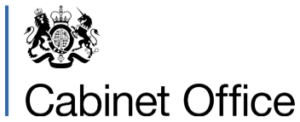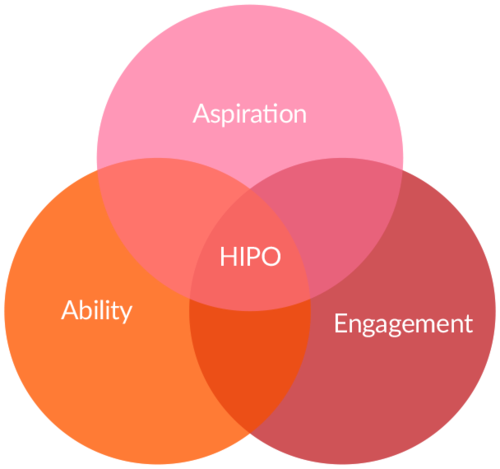Inclusivity and objectivity sit at the heart of our leadership assessment practice. We design bespoke assessments and leverage market leading tools, to ensure we respond to your unique context. This approach improves diversity and enhances performance by ensuring your processes are fair, equitable and driven by science.
Executive Profiling
Senior Executive recruitment processes often rely solely on interviews to determine the best candidate for the role. This method alone can result in poor decision making and is often flawed due to bias and a focus on first impressions.
Candidates are often assessed only for their ‘fit to role’ rather than ‘fit to team’ and ‘fit to culture’ or against generic leadership competencies. This risks overlooking the specific requirements for public sector leaders and your unique needs.
We take a different approach at GatenbySanderson.
Incorporating objective assessment insights
Context is key to successful and objective recruitment. We work with you to determine the critical success factors for the role using your own behavioural model or Altitude, our unique model that determines leadership excellence in the public sector.
We’ll identify the most appropriate assessment methods, such as psychometrics, psychologist interviews and stakeholder and media exercises, to measure what really matters.
We can also consider both ‘fit to team’ by profiling incumbent team members and ‘fit to culture’ by reporting against your values.
Reduce bias and increase fairness
Our approach is underpinned by science and delivered by experienced occupational psychologists, ensuring fairness and inclusivity. We effectively manage the risks of senior appointments and find the best person for the role based on objective assessment insights and process.

GS are proud to be the sole supplier of psychologist led assessment services for all shortlisted candidates for Senior Civil Service roles. Through the contract we provide psychologist profiling including psychometrics and Stakeholder Engagement exercises.
Succession Planning
How strong is your leadership population to deliver on the challenges they face now and in the future? Who might be ready to step up in the short and medium term to deliver in current and emerging critical roles?
Organisations who move with agility and use objective insight to identify and develop the diverse leaders are the ones who ensure their strategic objectives are realised.
Assessing leadership readiness
Some organisations choose to fill critical roles internally based on current job performance, rather than a clear view of readiness to take on larger responsibilities.
This reactive approach can lead to the wrong individual being appointed, resulting in missed opportunities and delayed projects. We work with organisations to assess readiness holistically, against 3 areas: an individual’s knowledge, track record and behaviour.
The strength of our combined expertise
Our unique approach combines the expertise of our executive search consultants and skilled in-house psychologists to measure knowledge, track record and behavioural capabilities. We combine a range of assessments, including 1-2-1 and group benchmarking, psychometric profiling, and immersive development centres to assess readiness.
Readiness dashboards
We provide readiness dashboards at both the group and individual levels with objective insight that helps inform our client’s succession strategies. Our group level dashboards give our clients a clear view of bench strength and highlights risks against critical roles. The individual view identifies strengths and development themes to help individuals close the gaps and accelerate readiness.
Future Leader Identification
Identifying and developing diverse future leaders is crucial for an organisation’s success. However, this process can be subjective and lack structure, undermining future bench strength and impacting true diversity. The identification of individuals frequently fails to account for the context of an organisation. Generic behaviours are used to help determine success when something more specific is needed and organisations often rely on ‘in role’ performance data to identify leadership potential. But the reality is that only 15% of high performers are also high potentials.
Defining potential in your context
To address these issues, we use a model of potential that measures individuals against Aspiration, Ability, and Engagement.
We bring this model to life in various ways for your managers, including guidance on how to differentiate between performance and potential and use psychometric assessments to benchmark potential.
Ensuring consistency, transparency, and fairness
Our approach ensures you are identifying and developing the right leaders who can rise to the current and future challenges your organisation might face.

Aspiration – do they want it?
Desire for greater responsibility and challenge.
Ability – will they be effective?
Fit to critical behaviours that matter in your context.
Engagement – will they stay?
Rational and emotional commitment to your organisation.
Source: © Gartner.

We partnered with CQC to establish a model of potential, unique to their context and referencing their success profiles, to bring greater objectivity and fairness to the talent identification process, this included manager guidance for use in career conversations.
Volume Assessment
When recruiting internally or externally for roles that are likely to receive a high volume of applications, it can be challenging to identify the best candidates in a way that is fair, cost-effective and doesn’t exclude any groups.
Cost effectiveness vs diversity
Many organisations use volume processes that focus on reducing numbers in a cost-effective way. But this approach can lead to a lack of diversity in the candidate pool and potential legal challenges.
Clients regularly come to us for support when they realise this approach isn’t working and they don’t want to make the mistake of only thinking about diversity after the process has ended.
They recognise how vital it is their post-holders reflect the diverse communities they serve, and a more diverse workforce in the public sector actively supports stronger organisational performance and employee retention.
We help you embed diversity from the start, rather than just monitoring impact at the end.
You can achieve both
We work with you to design and deliver robust, inclusive, and cost-effective volume recruitment processes that assess capability and maintain diversity throughout.
This usually includes:
– Candidate attraction
– Diversity embedded into assessment design and delivery
– Real-time adverse impact analysis
– Ongoing validation and diversity monitoring
– Candidate communication and feedback
Fair, inclusive, and defensible recruitment processes
Our approach ensures that you restructure and recruit the best candidates, reflecting the diversity of the communities you serve, while maintaining a cost-efficient process.
The GS way leads to fair, inclusive, and defensible recruitment processes that increase engagement, even for unsuccessful applicants.
Complete the form below to get a free copy of our Leadership & Talent Assessment digital brochure. One of our consultants will be in touch to offer you a free consultation to discuss your specific requirements and how we can make our services bespoke to your organisation’s needs.
